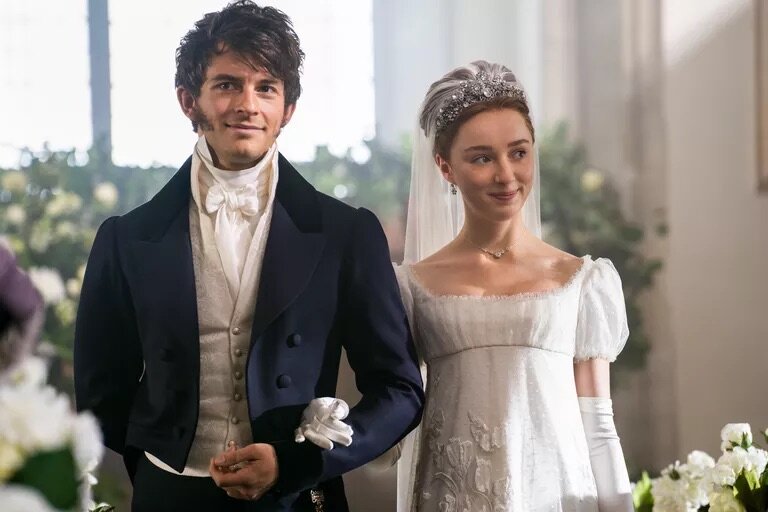Blog posts

Does the truth Matter?
How far romanticism and misrepresentation of the past is a problem is a serious topic of debate amongst the public and historians. Given the popularity of historical dramas, it seems prudent that they should be historically accurate as they act as a launchpad for history. But would people want to watch them? Bridgerton achieved a viewership of 82 million households and became the most-watched series on Netflix. The series reached No. 1 in 76 countries, yet is based on fiction written by Julia Quinn. Harlots is another drama set in the Georgian era based on the book ‘The Covent Garden Ladies’ by historian Hallie Rubenhold, and while popular, was cancelled unable to sustain the interest Bridgerton drew in. But what’s true and what isn’t in these dramas? Does it even matter?

‘One of the most cruel enterprises’
Marriage in period dramas is ALWAYS an exciting episode, filled with spectacle and romance. Marriage is also critical to every woman’s life in such Georgian shows. For example, in Pride and Prejudice, it is Mrs Bennet’s life goal to marry her daughters to good matches. The same is apparent in Bridgerton by which the first season is built around Daphne’s quest for marriage and how joyous she should be should she find a suitable love match. But, marriage was not always desirable to women, particularly not in the 1750s when the constitution of legal marriage was changed forever…

The debutante and the debaucher
A dichotomy of women is apparent in the Georgian period.
On one hand, there is the genteel woman, the perfect wife… on the other, there is the fallen woman, who is inclined to disobedience and sexuality.
While men of all classes and ages enjoyed the sexual deviant, the woman who would do a whole manner of things in the whore house, she would not make a suitable wife. Not if he was ‘in possession of good fortune’ as Jane Austen once wrote. This man must marry the perfect, pure woman.
But how different are the two? really…
